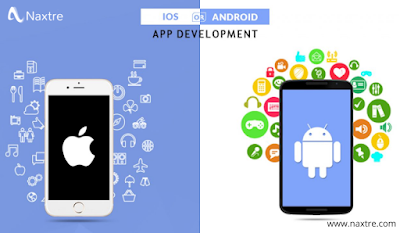The Transformative Impact of AI in Healthcare
Artificial intelligence (AI) has been making waves across industries, but few sectors have experienced its transformative power like healthcare. From diagnostics and personalized treatment to operational efficiency and patient management, AI is redefining how we approach medicine and wellness. While AI offers immense potential, it also presents challenges that need careful consideration. This blog delves into the expansive impact of AI in healthcare, exploring its applications, benefits, challenges, and future prospects.
Table of Contents
- Introduction to AI in
Healthcare
- AI Applications in
Healthcare
- Medical Imaging and
Diagnostics
- Drug Discovery and
Development
- Predictive Analytics
- Robotic Surgery
- Virtual Health Assistants
and Chatbots
- Healthcare Operations and
Administration
- Benefits of AI in Healthcare
- Challenges and Ethical
Considerations
- The Future of AI in
Healthcare
- Conclusion
1. Introduction to AI in Healthcare
AI in
healthcare refers to the use of machine learning algorithms and software to
analyze, understand, and assist in complex medical tasks. This technology is
not just about automation; it’s about enabling new levels of understanding and
creating solutions previously unimaginable. By mimicking human cognitive
functions like problem-solving and decision-making, AI systems can enhance
healthcare at every level, from early disease detection to personalized patient
care.
2. AI Applications in Healthcare
AI is
enhancing healthcare in numerous ways. Let’s explore some of the primary
applications currently driving the sector’s transformation.
Medical Imaging and Diagnostics
Medical
imaging, including X-rays, MRIs, CT scans, and ultrasounds, has traditionally
relied on the expertise of radiologists to interpret complex images. AI’s
ability to recognize patterns makes it ideal for analyzing medical images and
detecting abnormalities that may be invisible to the human eye. With deep
learning, AI systems can now identify issues like tumors, fractures, and
infections with precision that rivals or even surpasses human expertise.
For
instance:
- Radiology: AI algorithms can quickly
sift through thousands of images to pinpoint patterns indicative of
diseases like cancer, often reducing diagnosis times.
- Pathology: AI can assist in analyzing
tissue samples for histopathology, enabling early detection of cancer and
other diseases with high accuracy.
Drug Discovery and Development
The
traditional drug discovery process is time-consuming, expensive, and filled
with trial and error. AI speeds up this process by analyzing data to predict
how new drugs might interact with the body. AI-driven simulations can identify
promising compounds and predict side effects before clinical trials, cutting
costs and development time significantly.
In drug
repurposing, AI can analyze existing drugs for new therapeutic uses, accelerating
the availability of treatments for diseases that lack specific medications. AI
applications in drug discovery also improve:
- Predicting compound
interactions:
Algorithms can predict how certain compounds might behave in humans.
- Identifying potential side
effects: AI
can predict possible adverse effects early in development, improving drug
safety.
Predictive Analytics
Predictive
analytics powered by AI can help anticipate disease outbreaks, predict patient
outcomes, and manage patient populations more effectively. This application is
particularly valuable in managing chronic conditions and improving public
health.
For
example:
- Disease progression: AI algorithms can forecast
the progression of diseases such as diabetes, helping clinicians take
preventive measures.
- Hospital resource management: Predictive analytics can
help hospitals anticipate patient inflows, manage bed occupancy, and
allocate resources more efficiently.
- Outbreak prediction: During the COVID-19
pandemic, AI models played a crucial role in predicting infection surges,
enabling timely interventions.
Robotic Surgery
Robotic-assisted
surgeries have been around for a while, but AI is taking these systems to new
heights. With AI, robotic systems can analyze data from previous surgeries to
improve precision and technique. In certain complex procedures, such as heart
surgeries or neurosurgeries, robots assist surgeons by providing enhanced
dexterity and stability.
Advantages
include:
- Increased accuracy: AI-driven robots can make
minute movements beyond human capability.
- Reduced trauma: Minimally invasive
surgeries lead to quicker patient recovery times.
- Enhanced learning: AI-powered surgical
systems can analyze outcomes and continuously improve based on data from
previous surgeries.
Virtual Health Assistants and Chatbots
Virtual
health assistants, powered by AI, are becoming increasingly common in
healthcare. They provide medical advice, monitor patient health data, and
support lifestyle management, especially for patients with chronic diseases.
Chatbots can handle routine queries, freeing healthcare professionals to focus
on complex cases.
Examples
of virtual health assistants in action:
- Symptom analysis: Chatbots can ask patients
questions, analyze symptoms, and provide recommendations for further
action.
- Medication management: AI-powered apps can remind
patients to take medications on time and monitor their adherence.
- Mental health support: Some chatbots offer
cognitive behavioral therapy (CBT) techniques, helping patients manage
anxiety and depression.
Healthcare Operations and Administration
AI’s role
in streamlining healthcare administration is also noteworthy. Administrative
tasks, such as managing patient records, scheduling, billing, and claims
processing, can be optimized using AI, reducing errors and saving time.
AI-driven automation can enhance operational efficiency in several ways:
- Record management: AI can help sort and
organize electronic health records, making it easier for doctors to access
relevant patient information quickly.
- Claims processing: AI systems can expedite
insurance claims processing by identifying anomalies and preventing fraud.
- Resource allocation: AI can help hospitals
allocate resources more effectively, managing staff schedules and
minimizing wait times for patients.
3. Benefits of AI in Healthcare
Improved Accuracy and Speed in Diagnosis
AI-driven
diagnostic tools can analyze data far more quickly and accurately than human
practitioners. For example, studies show that AI algorithms can detect certain
cancers in medical images with accuracy rates exceeding that of radiologists.
In fields where time is critical, such as stroke diagnosis, AI’s ability to
analyze medical images rapidly can significantly improve patient outcomes.
Personalized Treatment Plans
Personalized
treatment has long been a goal in medicine, but the sheer amount of data needed
for truly individualized care has been difficult to manage. AI can analyze
genetic, lifestyle, and clinical data to provide customized treatment options.
By identifying the unique biological markers of each patient, AI enables
targeted therapies that are often more effective and have fewer side effects.
Operational Efficiency
AI's role
in automating administrative tasks not only reduces human error but also allows
healthcare providers to focus more on patient care. Automating repetitive
tasks, such as data entry and billing, reduces workload, streamlines
operations, and improves patient experiences. Efficient resource management,
made possible through predictive analytics, can also help reduce hospital
congestion and improve patient flow.
Accessibility of Healthcare
AI-powered
telemedicine platforms are making healthcare more accessible, especially for
patients in rural or underserved areas. By connecting patients with medical
professionals remotely, AI technology can bring expert consultations to those
who might not otherwise have access to specialized healthcare.
Enhanced Patient Engagement
AI-powered
mobile apps and wearable devices encourage patients to take an active role in
managing their health. These technologies monitor vital signs, remind patients
to take medication, and even provide mental health support. By increasing
patient engagement, AI can improve health outcomes, particularly for those
managing chronic conditions.
4. Challenges and Ethical Considerations
While the
benefits of AI in
healthcare are vast, several challenges and ethical concerns need to be
addressed for responsible adoption.
Data Privacy and Security
Patient
data is sensitive and highly confidential. With AI systems handling vast
amounts of this data, ensuring privacy and security is paramount. Data breaches
and unauthorized access pose significant risks. Additionally, AI-driven data
aggregation can inadvertently reveal identities, making it essential for
healthcare organizations to implement robust security measures.
Bias and Fairness
AI models
learn from data, and if the data contains biases, these biases can be reflected
in the AI’s decisions. For example, if an AI model is trained primarily on data
from one demographic group, it may perform poorly for others. Ensuring fairness
requires careful dataset management and diversity in training data, along with
ongoing monitoring of AI system performance across demographic groups.
Accountability and Transparency
When an
AI system makes a medical recommendation or diagnosis, it’s often challenging
to understand how it arrived at its conclusion, especially with complex machine
learning models. This “black box” issue can create trust issues. Physicians and
patients need transparent AI tools that can explain their decision-making
process. Regulatory bodies are increasingly requiring that AI tools used in
healthcare meet specific transparency and explainability standards.
Regulatory Hurdles
The rapid
pace of AI development
often outstrips regulatory frameworks, which are essential to ensure the safety
and efficacy of AI-based healthcare solutions. Regulatory bodies, such as the
FDA, are working to create clear guidelines for AI systems in healthcare, but
there are still gaps. For instance, regulating continuously learning systems
poses unique challenges.
Potential for Job Displacement
As AI
handles more tasks, there is concern about the displacement of healthcare
workers. While AI can assist in areas like diagnostics and data analysis, its
role is to support rather than replace healthcare professionals. Re-training
and upskilling programs can help professionals adapt to new roles where they
work alongside AI technologies.
5. The Future of AI in Healthcare
The
future of AI in healthcare is promising, with advancements in precision
medicine, enhanced diagnostic tools, and fully integrated healthcare
ecosystems. Emerging trends include:
- AI-driven genomics: By decoding complex
genomic data, AI will enable even more precise treatments tailored to
individual patients.
- Telemedicine expansion: AI will continue to
enhance telemedicine with advanced diagnostics and virtual consultations,
making healthcare accessible globally.
- Real-time health monitoring: Wearable AI devices will
monitor patients continuously, providing real-time health data that
enables proactive intervention.
- Integrated health systems: AI will create a connected
ecosystem where patient data flows seamlessly between hospitals, clinics,
and primary care, offering comprehensive and continuous patient
management.
6. Conclusion
AI is
transforming healthcare, offering enhanced diagnostic accuracy, personalized
treatment plans, and operational efficiency. While challenges such as data
privacy, bias, and regulatory hurdles remain, the potential benefits are too
significant to ignore. By addressing these issues responsibly, healthcare
providers and tech developers can ensure that AI remains a force for good,
creating a healthier, more accessible, and patient-centered healthcare system.
As we
look to the future, it is clear that AI will play a critical role in advancing
medicine. With continuous innovation, AI holds the promise of a future where
healthcare is not only more effective but also more equitable and
compassionate. In partnership with healthcare professionals, AI will redefine
the boundaries of what is possible in medicine, paving the way for a healthier
world.



Comments
Post a Comment